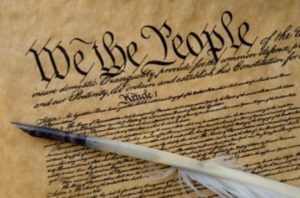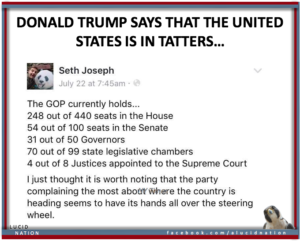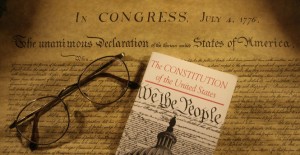Social media are fluttering all over the place with despair.
Those who supported Hillary Rodham Clinton’s bid for the U.S. presidency are predicting gloomy days, months and years ahead as Donald J. Trump prepares to become the next president.
I make no apologies for my own loyalties. I preferred Clinton to win, too.
I just want to put a little perspective on what I believe lies ahead for the nation … and the new president.
Trump says he intends to do a lot of things: He will “build a wall,” he’ll revoke the Affordable Care Act, he’ll ban Muslims from entering this country, he’ll revoke trade deals.
Here’s this little impediment to all those things he intends to do: the United States Congress.
The founders got it exactly right when they built a three-tiered system of government: the executive, legislative and judicial branches.
As a friend and mentor once reminded me: A president proposes, Congress disposes.
So, there you have it. The president can declare his intention to do all kinds of things, but Congress stands in the way of all those bold — and occasionally nutty — intentions.
Factor in, too, that Trump — who has zero military or government experience — has damn few friends in Congress. He has built no relationships on Capitol Hill. The Republican “establishment” pols who run both congressional chambers dislike Trump, who spent a great deal of his political capital trashing the work they do; of course, it’s understood that congressional Democrats despise the president-elect.
Does anyone seriously believe the Congress is going to give the new president a free pass on anything, let alone some of the more controversial — and ridiculous — ideas he has pitched to American voters?
You also ought to consider that members of Congress are going to watch Trump carefully to ensure he doesn’t stray too far off the constitutional trail.
Trump is going to learn in very short order that the Constitution grants the president limited authority. He will be unable to the things he wants to do unilaterally. What about executive authority? Well, he’d better take care with how he uses that power as well.
I continue to have faith in the system of government that our founders created. These were wise men who, I’ll concede, didn’t grant a perfect government document. They didn’t give women the right to vote, nor did they grant equal rights to our nation’s black citizens; those reforms came later.
However, they did place plenty of power in the legislative and judicial branches of government, which they can use to blunt an executive branch that seeks to reach beyond its grasp.
Donald Trump campaigned for the presidency as if he didn’t quite understand all of that.
He will learn it quickly.









